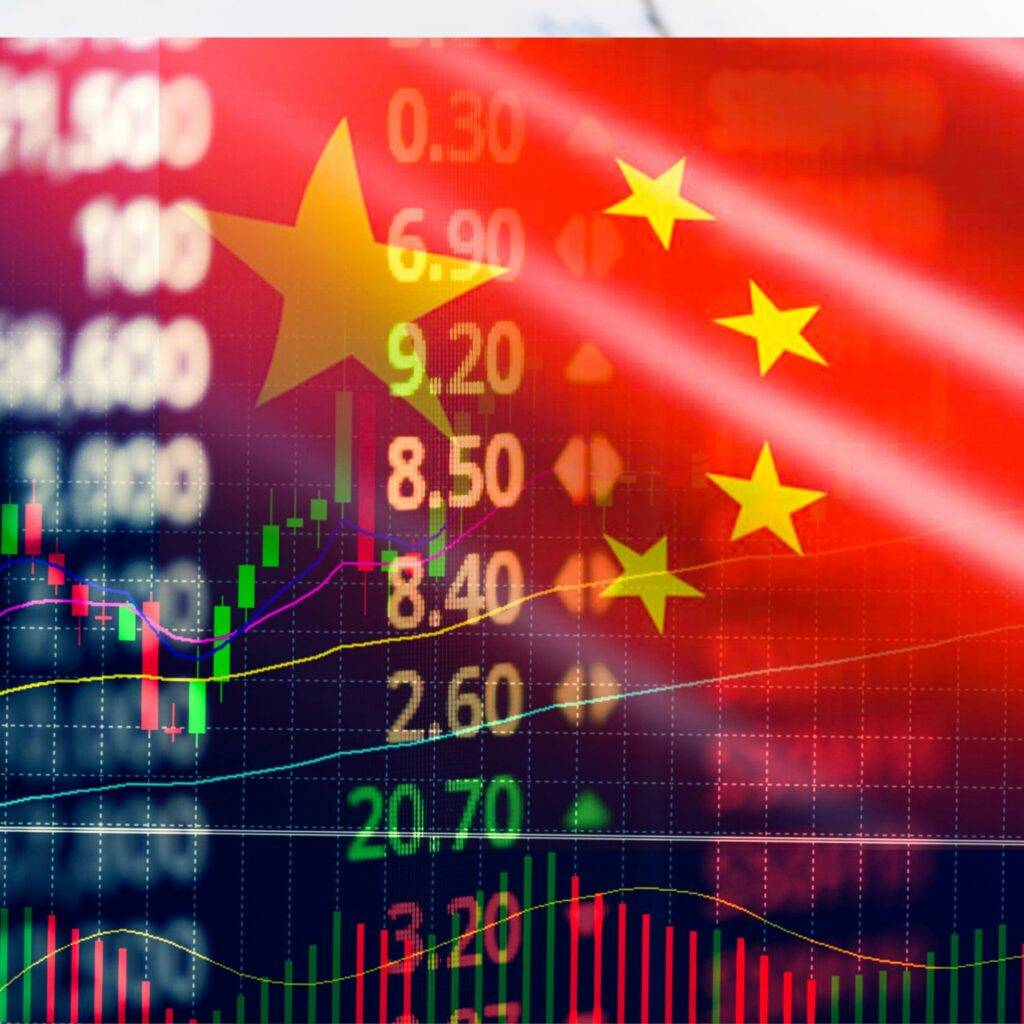China, the world’s second-largest economy, has become an attractive destination for global investors. Its strong growth over the past few decades and continued expansion in sectors like technology, consumer goods, and renewable energy make it a key player in the global economy. If you’re looking to diversify your portfolio and tap into China’s economic potential, Exchange-Traded Funds (ETFs) are one of the most accessible ways to invest.

In this post, we’ll explore the top six ETFs that provide exposure to China’s economy. These funds are listed on both U.S. and Canadian exchanges, and we’ll focus on those with the largest assets under management (AUM), which often offer better liquidity and lower costs due to their size.
Why Invest in ETFs that Track the Chinese Economy?
1. Diversification
China’s economy operates differently from those in North America and Europe, with growth drivers like a massive domestic market and government-driven initiatives. Investing in China can provide geographical and economic diversification to your portfolio, reducing risks associated with a single region.
2. Growth Potential
Although China’s growth has slowed compared to previous decades, it remains a powerhouse with emerging sectors like tech, e-commerce, and renewable energy, offering significant growth opportunities.
3. Ease of Access
ETFs offer a simple way to invest in a broad selection of Chinese companies without having to deal with the complexities of foreign stock markets or individual stock-picking.
Of course, investing in China comes with risks, including political instability, regulatory uncertainty, and economic slowdowns. But with ETFs, you can manage these risks through diversification.
Top 6 ETFs That Track the Chinese Economy
1. iShares MSCI China ETF (MCHI) – U.S.
- Ticker: MCHI
- AUM: $7.93 billion
- Expense Ratio: 0.59%
- Exchange: NYSE Arca
The iShares MSCI China ETF (MCHI) is one of the most popular China-focused ETFs available to U.S. investors. It tracks the MSCI China Index, covering large and mid-sized companies listed both onshore and offshore (e.g., in Hong Kong). This ETF offers a diverse mix of industries, including technology, financials, and consumer sectors.
Key holdings include industry giants like Tencent, Alibaba, and China Construction Bank, offering balanced exposure to both new tech companies and traditional industries.

2. KraneShares CSI China Internet ETF (KWEB) – U.S.
- Ticker: KWEB
- AUM: $4.85 billion
- Expense Ratio: 0.70%
- Exchange: NYSE Arca
KWEB focuses on China’s booming internet sector, including companies involved in online retail, social media, and digital services. As China’s internet penetration deepens, this ETF has seen strong growth.
Its top holdings include Alibaba, JD.com, and Pinduoduo, making KWEB a perfect fit for investors interested in China’s fast-growing tech and e-commerce space.
3. iShares China Large-Cap ETF (FXI) – U.S.
- Ticker: FXI
- AUM: $3.23 billion
- Expense Ratio: 0.74%
- Exchange: NYSE Arca
FXI is a well-established ETF that focuses on 50 of the largest Chinese companies traded in Hong Kong. It’s heavily concentrated in financials, energy, and telecommunications sectors, primarily in state-owned enterprises (SOEs).
While it may not have the tech focus of MCHI or KWEB, FXI offers exposure to more stable, dividend-paying companies like China Mobile and China Construction Bank, which can appeal to income-seeking investors.
4. BMO China Equity Index ETF (ZCH) – Canada
- Ticker: ZCH
- AUM: $255 million
- Expense Ratio: 0.71%
- Exchange: Toronto Stock Exchange (TSX)
For Canadian investors, the BMO China Equity Index ETF (ZCH) offers a direct way to gain exposure to the largest Chinese companies. It tracks the FTSE China 50 Index, which includes 50 of the most prominent firms listed on the Hong Kong Stock Exchange.
This ETF is weighted towards the financial sector but also includes technology leaders like Tencent and consumer companies such as Alibaba, providing a broad snapshot of China’s economy.
5. iShares China A-Shares ETF (XCH) – Canada
- Ticker: XCH
- AUM: $85 million
- Expense Ratio: 0.60%
- Exchange: Toronto Stock Exchange (TSX)
The iShares China A-Shares ETF (XCH) offers Canadian investors access to the A-share market, which includes companies listed on China’s domestic stock exchanges in Shanghai and Shenzhen. A-shares have historically been challenging for foreign investors to access, making this ETF an excellent way to gain exposure to Chinese companies that are less influenced by global market movements.
XCH tracks the FTSE China A Inclusion Index and is ideal for those looking to invest in China’s domestic economy. Companies in the ETF span across industries such as consumer goods, financials, and industrials, giving it a more diversified exposure to China’s economy.
Final Thoughts: Which ETF is Right for You?

Investing in ETFs that track the Chinese economy can be a great way to diversify your portfolio and tap into the growth potential of one of the world’s largest economies. However, the right ETF for you will depend on your investment goals and risk tolerance.
- If you want broad exposure to the Chinese economy, MCHI and ZCH are strong choices.
- For a more sector-specific play, particularly in China’s fast-growing tech and e-commerce markets, KWEB is ideal.
- For a focus on large-cap, dividend-paying Chinese companies, FXI is a more stable option.
- If you’re looking to tap into China’s domestic economy, XCH (for Canadian investors)
While China’s economy presents significant growth opportunities, it also comes with risks, including political tensions, regulatory hurdles, and market volatility. ETFs can offer a diversified and relatively low-cost way to access these opportunities while managing risk.
By carefully selecting the right ETF for your portfolio, you can benefit from China’s economic potential while keeping an eye on the broader risks.

